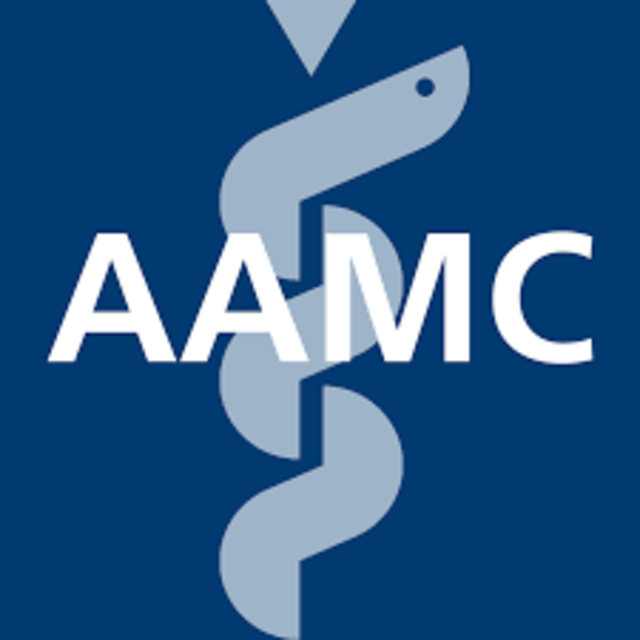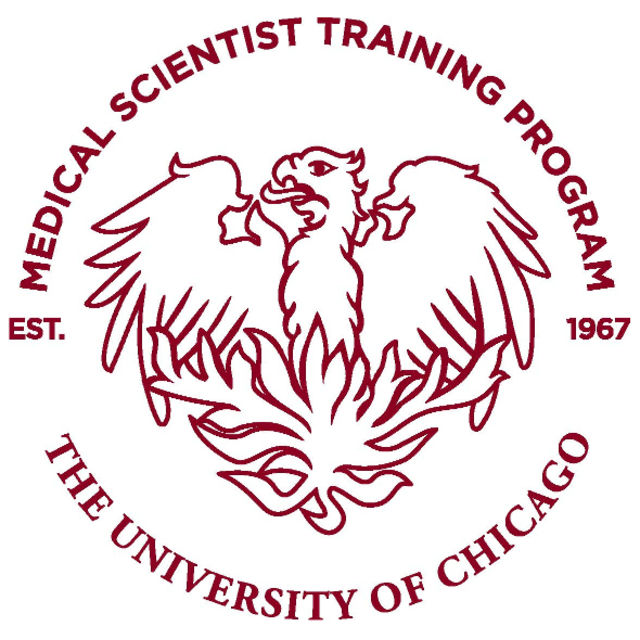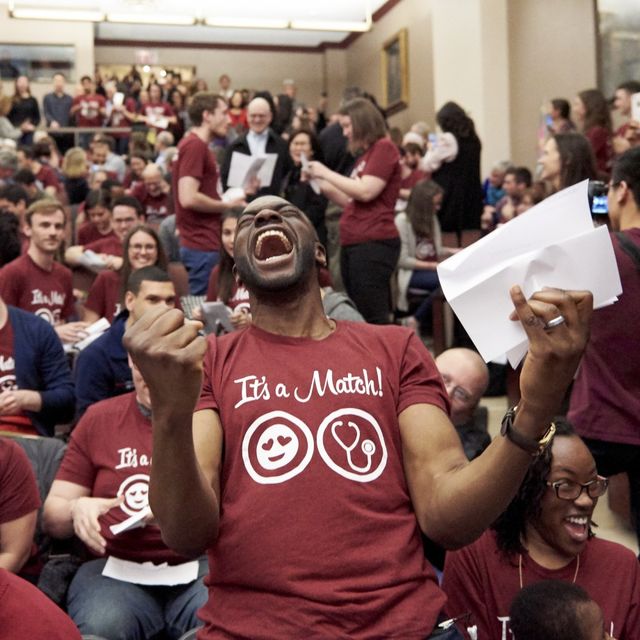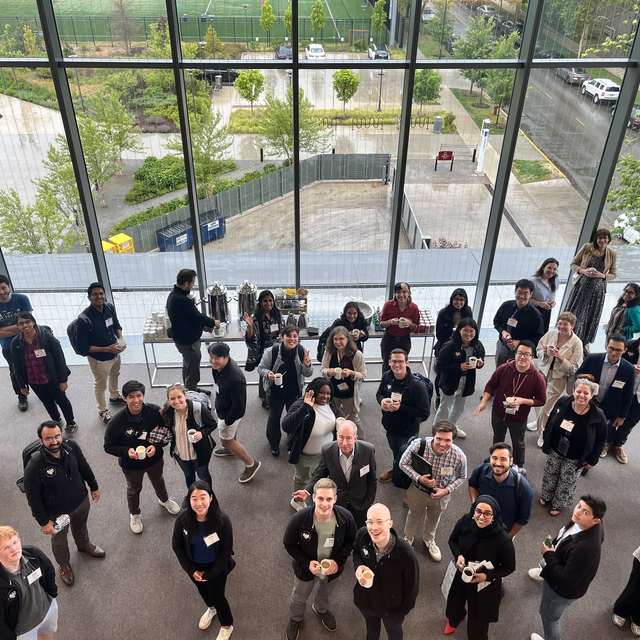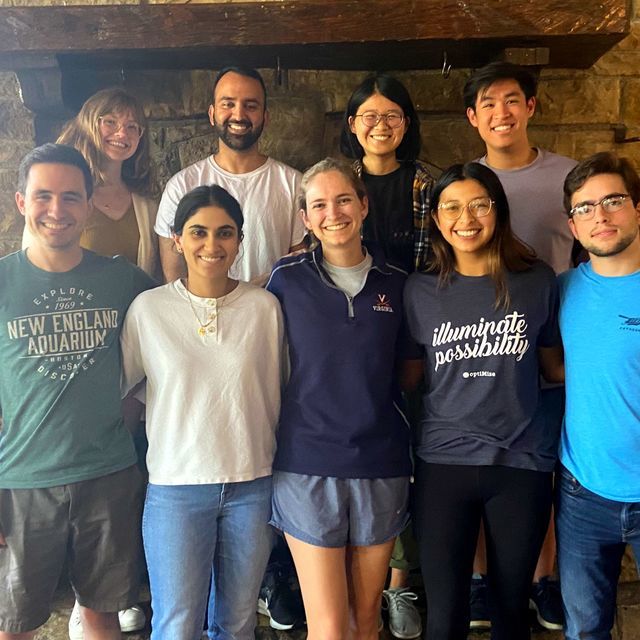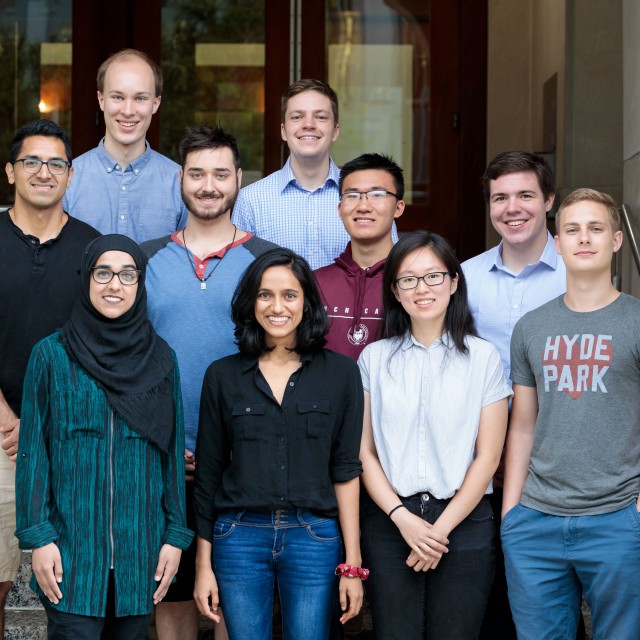
MSTP
Prospective Students
Interested in UChicago's MSTP? Register to receive more information.
The University of Chicago is internationally known as the “teacher of teachers” and is firmly committed to scholarship of the highest order. Researchers at the University have made numerous fundamental discoveries including identifying REM sleep, discovering erythropoietin, and proving that chromosomal translocations can cause cancer. Eighty-five recipients of the Nobel Prize have been associated with the University including thirteen since 1979. The MSTP fully capitalizes on this rich intellectual environment to provide its trainees with outstanding opportunities for an education in the sciences. Most MSTP trainees conduct their research within the Division of Biological Sciences which has twenty-one highly regarded degree-granting programs in areas including genetics, molecular biology, neurosciences, immunology, microbiology, cancer biology, and evolutionary biology. Areas of specialization available through the Division of Physical Sciences include chemistry and physics. Students may pursue a specialization in the Pritzker School of Molecular Engineering in addition to other areas of study as approved.
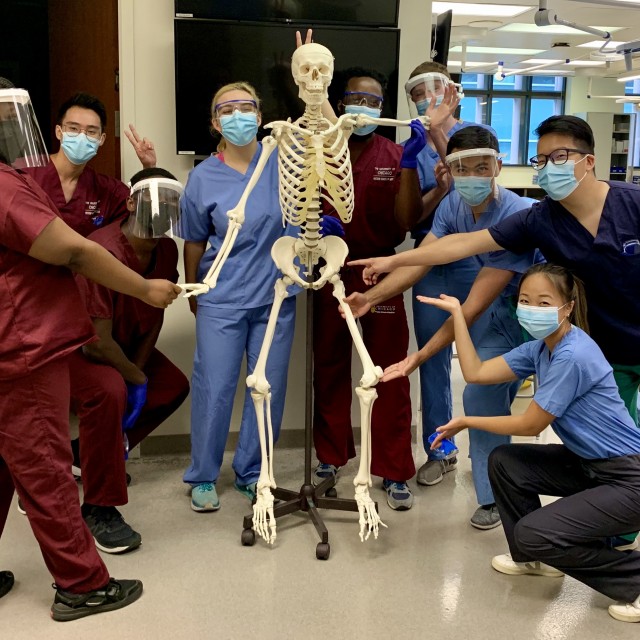
Commitment to Community Outreach & Service
Community outreach and service are embedded in MSTP’s culture. All students complete service hours annually. The geographic location of Hyde Park offers unique opportunities to serve diverse patient populations, and several MSTP students have been honored for contributions locally and nationally. Examples of our students' outreach and service include but are not limited to: volunteering at one of Pritzker's five student-run free clinics, mentoring middle school students in STEM subjects, tutoring inpatients at Comer Children’s Hospital, serving as sexual violence victims advocates at the University of Chicago Medical Center Emergency Room, among other forms of involvement.
I feel so lucky to be at an institution that is both highly academically rigorous and deeply passionate about service, community, and positive change. ”
MSTP Applicant FAQ
The Medical Scientist Training Program seeks students with strong academic records and a commitment to biomedical investigation. Successful applicants generally have extensive research experience and strong letters of recommendation indicating their interest and potential in basic science research.
MSTP requires a minimum of 3 and no more than 6 letters of recommendation. At least 3 of the letters must attest to the applicant's research abilities/potential. All letters can be combined in a committee letter, submitted individually or a combination of both. Please do not submit more than 6 letters.
On the secondary application, you may list the name and information for the person who submitted the committee packet on your behalf. You do not need to individually list the information for all recommenders who wrote the letters contained in the packet. If you need to submit additional letters which are not contained within the packet, please list the name and contact information for each of those letter writers, in addition to the name and contact information for the person who submitted the committee packet. Please do not submit more than 6 letters of recommendation total.
Not at all. Students frequently change research interests after beginning their medical studies.
Our students have a choice of one of two ways to complete the program. They may do their first year of medical school, break away and do their graduate work, then return to complete the remaining 3 years of medical school (1-4-3). This is the preferred way so that our students can do their clinical training directly before they go into the clinics during third year. Alternatively, students may complete two years of medical school and then take a leave of absence to complete their PhD, then return to Pritzker for the final two years of medical school (2-4-2).
Yes. Your application is initially reviewed jointly by the medical school and the MSTP. If both parties are interested, an interview invitation will be issued. The application can also be rejected outright or put on hold for further review later on. The applicant then comes for a joint interview with both Pritzker and the MSTP. If the MSTP interviews the candidate but does not accept him/her, the applicant can make a written request before the December 1st application deadline to have the application transferred to MD-only consideration, at which time the application will go through the MD-only committee process.
The MSTP is primarily open to incoming medical students. Current Pritzker students interested in pursuing a PhD in the biological sciences may apply for the Growth and Development Training Program as well as various other Biological Sciences Divisional training grants.
Federally funded by a National Institute of Health T32, the MSTP requires U.S. citizenship or permanent resident status for its trainees. (Requirement for trainees under an NIH Training Grant) Both international and domestic prospective students can apply separately to other University programs, including the Pritzker School of Medicine (MD program), the PhD programs within the Biological Sciences Division, or other PhD programs at the University of Chicago.
Every student who submits an application through AMCAS will receive an online Pritzker School of Medicine Supplemental Application by email. The Secondary Application requires a non-refundable fee of $85, which may be waived if the applicant has been granted the AMCAS Fee Waiver Program. Students who feel that the secondary application fee is a barrier to their application are encouraged to contact the Pritzker School of Medicine Admissions Team directly. In addition, applicants must submit 3-6 letters of recommendation.
No. MSTP applicants only need to submit an application to the MSTP through the Pritzker School of Medicine. If accepted into the MSTP, they will then automatically be a part of the Interdisciplinary Scientist Training Program for their PhD work.
MSTP applicants do not need to take the GRE. MCAT scores and coursework are sufficient to earn a PhD in the Interdisciplinary Scientist Training Program (ISTP), the department through which all MSTP applicants earn their PhD.
Students typically apply to either the MSTP or to the MeSH program, because these programs are fundamentally different. The main difference in the application process is that students applying to MeSH are seeking a PhD in the social sciences, humanities, or related professional schools (such as the Harris School of Public Policy) and must submit separate applications to these PhD programs. You can learn more about the MeSH program on their page.
All MSTP trainees earn their PhD through the Interdisciplinary Scientist Training Program, the PhD-granting arm of the MSTP. Trainees will still be able work with any faculty member in the biological or physical sciences, but as part of an MSTP-only department that will grant their PhD. This arrangement ensures maximum flexibility, provides a programmatic identity that fosters the seamless progression of our students through the medical and graduate phases of their training, and offers an efficient and highly integrated training of MSTP students in systems biology approaches to human biology in health and disease.
All MSTP trainees are fully funded through a variety of mechanisms including but not limited to the program's NIH T32. Trainees are fully funded for the duration of their time in the program beginning in their first quarter of enrollment, pending good academic standing and progress. Funding is inclusive of tuition, a stipend, student fees, basic health insurance as provided by the university (not including dental or vision). Due to trainees being funded up to cost of attendance as determined by Pritzker's Financial Aid office, MSTP trainees are not eligible for federally funded student loans.
Yes, on the secondary application sent following the selection of Pritzker School of Medicine, all applicants will be able to detail the ways in which their candidacy may have been impacted by COVID-19.
Please email MSTP@bsd.uchicago.edu with any admissions questions.
Campus & Hyde Park
The Pritzker School of Medicine is one of the few medical schools in this country to be located physically on the University campus. Known for its gothic architecture, the University of Chicago campus in Hyde Park is home to nearly 14,000 undergraduate and graduate students and six professional schools.
Our students practice medicine in a number of state-of-the-art facilities. The 10-story, 1.2 million square-foot Center for Care and Discovery serves as the core of the medical campus. Additional campus facilities include the Comer Children's Hospital, Duchossois Center for Advanced Medicine, and Mitchell Hospital. We offer clinical experiences at NorthShore University HealthSystem, and La Rabida Children's Hospital.
The campus is located in the Hyde Park neighborhood, just seven miles south of downtown Chicago. Hyde Park is a historic area known for its political and social activism, strong sense of community, and many historic and architectural landmarks. It has been cited as one of the most racially and economically integrated urban communities in the United States. Hyde Park boasts dozens of museums and cultural institutions, a wide variety of cafes and bakeries, and a large number of one-of-a-kind shops and independent bookstores. Our neighborhood will soon be home to another distinctive attraction: the Obama Presidential Center.
Only a twenty minute train or bus ride from downtown Chicago, the city is literally at your doorstep. Chicago is the third-largest metropolitan area in the nation, home to more than 200 theaters and art galleries, 552 parks, and 26 miles of lakefront trails. Students can take advantage of these attractions by using the city's robust public transit system, which includes buses, trains, and the L--our nickname for the elevated rapid transit trains.
In addition to Chicago's robust public transit system, UChicago provides frequent free shuttles (both day and night) to help you travel around campus, Hyde Park and portions of the neighboring communities.
The University of Chicago is committed to the safety and security of those on campus and the surrounding community. There are many safety and security resources available including but not limited to the new Lyft Ride Smart Program, a campus-wide cAlert System, the Dean-on-Call Program, the UChicago Safe Mobile Safety App, and more.
